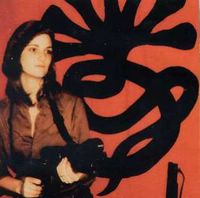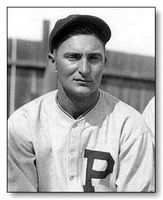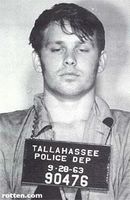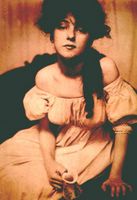"Kinsey": A Review
Some thoughts on "Kinsey," the biopic of the controversial sex researcher, Dr. Alfred Kinsey ...
What's most interesting about the film, I think, is its decidedly ambivalent take on Kinsey, the pioneering sexologist whose exhaustive research in the 1940s and early '50s brought sex -- particularly its more offbeat practices -- out of the taboo and into the light. Director-writer Bill Condon ("Gods and Monsters") might pay only cursory attention to Kinsey's much-debated research of pedophilia, but his movie does an admirable job venturing where many biopics don't, by exploring his protagonist's more disturbing traits. Condon clearly respects Kinsey's efforts to end the guilt and shame that dogged many people with sexual peculiarities, but the Dr. Kinsey of the film is not the sort of guy to elicit many warm fuzzies.
As portrayed by Liam Neeson, Kinsey is the extreme scientist. Behind his social awkwardness and geeky smile is a man nearly incapable of human warmth. His obsessive research of human sexuality is clinical and dispassionate, effectively sapping anything remotely sexy from sex. Ironically, Kinsey liberates sexuality by thoroughly objectifying it.
The movie chronicles Kinsey from the time of childhood, growing up in the shadow of a strict minister father (John Lithgow) who rails against the immoral implications of telephones and zippers. Rejecting such religious indoctrination, young Alfred is swept up by the "cathedral" of the outdoors and eventually studies zoology. He studies at Harvard and goes on to teach entomology at Indiana University, where he dutifully catalogs millions of gall wasps. Kinsey is struck by the slight variations of each and every one of the small insects, fascinated by the idea that diversity itself becomes a sort of biological norm. It is a lesson he eventually transfers to human sexuality once he realizes how ignorant many of his students, especially young married couples, are about sex.
Kinsey can relate to this lack of knowledge. He and his unconventional wife, Clara McMillen (Laura Linney), are virgins when they marry, and their wedding night consummation is painfully inept. They learn the hard way (don't go there) the scarcity of credible information about sex. "Morality disguised as fact!" is Kinsey's disgusted reaction to the stodgy sex tomes of the era, books that pretend foreplay doesn't exist and dismiss homosexuality as the rarest of deviances.
And so is born Kinsey's determination to oversee a broad survey of sex. He and his cadre of young researchers, led by the sexually ambiguous Clyde Martin (the amazing actor Peter Sarsgaard), fan out across the country for in-depth interviews on sex. When did you first masturbate? Did you have premarital sex? Extramarital sex? What is this about you and a horse? The questions accumulate and Condon illustrates the process ingeniously by filling the screen with hundreds and hundreds of talking heads blanketing a map of the United States. The effect is funny, affecting and even a little enthralling.
But Condon consistently tempers his treatment of his hero. Magnificently performaed by Neeson, Kinsey is part visionary, part idiot. Increasingly aware of his own bisexuality, he lets himself be seduced by Martin and then spills all to Clare, seemingly indifferent to the ramifications of infidelity and ignorant of how the truth will affect his wife. Moreover, Kinsey encourages an environment of spouse-swapping among his researchers and is baffled when things get out of hand. Even after writing his two groundbreaking (and bestselling) books, 1948's "Sexual Behavior in the Human Male" and 1953's "Sexual Behavior in the Human Female," Kinsey still doesn't seem to appreciate that humans and insects have some very real differences when it comes to matters of the heart.
Condon also draws a disturbing connection between sex researcher and sex predator. In one dramatically explosive scene, Kinsey and a colleague, Wardell Pomeroy (Chris O'Donnell), interview a life-long pedophile (William Sadler) who shows the researchers a journal in which he has logged copious information of his sexual experiences -- even down to the measurements of his victims' genitalia. "See?" says the pedophile as he proudly hands Kinsey the journal. "We're alike in some ways."
The film certainly won't quell the ongoing cultural divide over Kinsey's methodology and conclusions. Many Kinsey detractors, chiefly Dr. Judith Reisman, allege the sexologist sanctioned pedophilia because minute data about child sex-abuse victims surfaced in Kinsey's now-infamous Table 34. The Kinsey Institute, for its part, says the content of that table actually stemmed from a single individual -- the nameless pedophile depicted by Sadler in the film -- who had meticulously kept details of his crimes since 1917.
That doesn't bode so well for Kinsey's credibility. If he accepted the second-hand accounts of a pedophile (and perhaps more than one) who outrageously claimed their victims experienced orgasm, then he was, to put it mildly, a shoddy researcher. The other possibility, the one made by his most zealous foes, is that Kinsey or his staff actually observed (or otherwise had close knowledge of) the sex crimes at the center of Table 34.
Despite such controversies, "Kinsey" catches a few of the bugs common to formulaic Hollywood biopics. It suffers from periodic self-importancitis. Kinsey is a loquacious character, but Condon's screenplay occasionally matches the doctor when it comes to professorial dryness; and Carter Burwell's musical score telegraphs a little too much. The third act is especially disappointing, as Condon rushes through his hero's inevitable downfall (Americans devoured Kinsey's postulations about male sexuality, but were less keen on hearing that their mothers and grandmothers masturbated). Still, much is forgiven, thanks to a stunning cameo by Lynn Redgrave as a woman who literally owes her life to Kinsey's research.
"Kinsey" is far from a perfect film, but it is a gutsy one.























0 Comments:
Post a Comment
<< Home